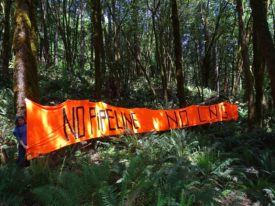Clark:
Charts of the day: by this reckoning, the US housing bubble has more or less deflated. Prices have fallen back to roughly where they “should” be, based long-term on inflation and housing cost trends. That doesn’t mean that housing prices won’t go down further, or that there aren’t local bubbles somewhere. But at this point, US home prices are about what you might have expected, if you’d lived from 1970 through about 2000 and slept through the bubble years.
Heard of Zipcar? Now there’s…Zipcarp!!
According to Gallup, the war on smoking is working. And CDC says the same thing. The trends might be slower than I’d like, but at least they’re moving in the right direction.
Alan:
Cascadia has a big, untapped reforestation opportunity: offshore kelp forests remain depleted compared to their historic size and extent. And kelp beds turn out to hold a lot of carbon, according to a new study covered by the San Jose Mercury News. To restore our offshore “forests,” we need to restore sea otter populations. Otters control the sea urchins that otherwise kill the kelp.
Anna:
I was interested to read LaDonna Redmond’s take in ColorLines on the food justice movement. She’s a longtime urban farmer from the west side of Chicago and a senior program associate at the Institute for Agriculture and Trade Policy, a nonprofit food policy think tank and she’s gathering people of color and indigenous leaders in the Twin Cities at the end of this month for the Food + Justice = Democracy conference.
Redmond laments that even if we could wave a magic wand to get the food system we want, most people don’t know what that would look like. She hopes the conference will help to define some solid principles of food justice.
This comes at a time when food policy is more important than ever—with overwhelming numbers of hungry Americans, a food stamp program in peril, disproportionate numbers of Blacks and Latinos suffering from obesity and diet-related health issues, a drought-devastated grain belt and predicted rises in food prices, and with the primary national network for the food justice movement, the Community Food Security Coalition, closing their doors. Redmond hopes that clear guiding principles will help unify people of color into a multiracial movement around food, following the model set by the environmental justice movement.
And—at risk of revealing my political stripes—I love Bernie Sanders almost as much as I love Bill Moyers. See them both together, talking about how to fix our broken political system—in this Moyers and Company interview.
What if the best and brightest Madison Avenue agencies (and their big budgets) made advertisements for things we actually need instead of their usual practice—confusing us and seducing us with things we don’t need.
And, making a glorious library out of a defunct big box store. I love it.
Here’s a story to make you feel good. Mike Arizona spent 15 years looking at the Duwamish River from his BECU office windows in Tukwila. He finally decided he wanted to pitch in to restore the river to health. Two years ago he started a one-man crusade to get rid of invasive species. His solo efforts grew into organized volunteer work parties, and now it’s evolved into a full-blown partnership between BECU, the City of Tukwila, and the conservation group Forterra. This kind of thing sets a good example for corporate neighbors up and down the river to get involved in the health of the places we live and work. There’s a kickoff party today (Friday). Be advised: You’ll be put to work!
Eric dP:
From Bellingham’s Dana Lyons (of “Cows With Guns” fame) comes what is perhaps the first anthem of the opposition to coal exports.
I was also pleased to see, courtesy of the Department of Energy, that quarterly US greenhouse gas emissions reached their lowest level in 20 years. The improvement was the result of a mild winter that reduced demand for household heating, a decline in coal-fired electricity generation (due largely to low natural gas prices), and reduced gasoline demand.
Eric H:
Now this is how you advertise a bus.








